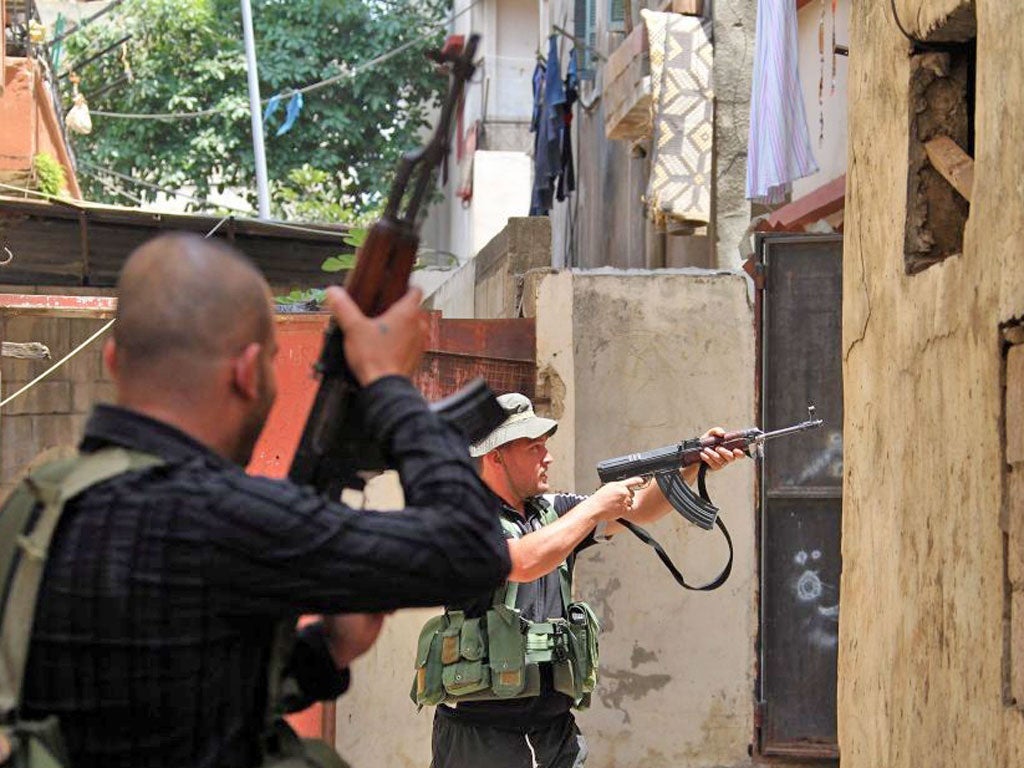FSA builds rebel state in mountains – out of government's reach

In the rolling blue hills and lush olive groves of the north Syrian countryside, a fledgling rebel state is forming, as opponents of Bashar al-Assad's regime attempt to take control.
The winding roads are criss-crossed with regular Free Syrian Army (FSA) checkpoints and although some are simply lines of rocks scattered across the road, others have kiosks painted with the colours of the opposition flag. Plain-clothes FSA men co-ordinate with short-wave radios, checking the roads ahead are clear and searching passing vehicles for weapons and regime forces.
"The army can't come to here," said Abu Mari, an FSA commander, recently returned from 30 years in exile. Driving through the streets of these villages, he receives salutes of recognition. He openly carries a gun, its butt taped with the colours of the new Syrian flag.
At the secret headquarters of the al-Haq brigade, hidden in a cave complex in the mountains, he outlined the plans for a future free zone here, modelled on the area around Benghazi in last year's Libyan war. "First thing, we make checkpoints," he explained. "Anyone working with the government, we capture him."
"Idlib is our Benghazi," agreed the dozen or so men slouched on the Persian carpets and cushions that lined the rocky walls and floor of the cave. A mix of army defectors and local volunteers, they're part of a brigade of armed men. Their headquarters is equipped with a satellite dish powered by a stolen generator and routed through neighbouring Turkey. There's satellite television and high-speed wireless internet.
But it's a long way from the Libyan safe haven protected by Nato air strikes, which was the springboard to overthrowing Muammar Gaddafi.
In the nearby villages of Kili and Hazano, hundreds of torched homes reveal the inability of the people to protect themselves from a fully fledged government assault.
Driving through one village, this reporter was startled to see regime tanks. "We are safe here," the local rebel commander repeatedly reassured. "They can't move," he explained. "They're guarding a bank."
It looks like the clumsy violence and intimidation of a regime is increasingly pitted against a more nimble insurgency enjoying overwhelming public support in this area. There are a few guns, bought from the Turkish mafia, and disenchanted regime soldiers prepared to deal in weapons to make some cash.
But the brigades in Idlib say they lack the heavy weapons they need to take on the regime's tanks and helicopter gunships. In their absence, the men are learning how to build bombs. Without funds for weapons, improvised explosive devices and bomb attacks may prove the FSA's most effective tactic in what is developing into a long, attritional civil war.
Subscribe to Independent Premium to bookmark this article
Want to bookmark your favourite articles and stories to read or reference later? Start your Independent Premium subscription today.

Join our commenting forum
Join thought-provoking conversations, follow other Independent readers and see their replies